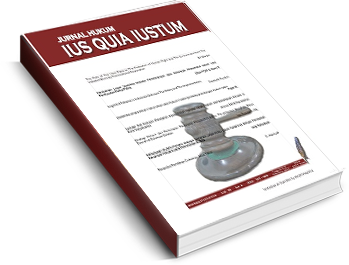Main Article Content
Abstract
This research is to discuss: first, what accounts for the reconceptualization of legality; and second, how to establish the legality principle law politics based on the social conditions of Indonesian society. This research is a normative legal study using the primary and secondary legal sources. This study concludes that first there is an adoption of characteristics which are against the formal law in legality principles of Criminal Code, namely the provision stating that a crime does exist in case of the fulfilment of the elements stated in the descriptiom of the case or accompanied by the consequences, which show that there is no place for unwritten law (customs) by looking at the existence of the characteristics of formal law violation. Second, ideas, concepts, values, of balance are the significant support in the legal political attempt of the legality principle using the prismatic concept (equilibrium value). The legality prismatic concept of the legality principle is originated from and oriented to the equilibrium of five pillars of Pancasila, which can be compacted into “three pillar equilibrium”, those are religion pillar, humanity pillar, and social pillar (nationalism, democracy, and social justice).
Keywords
Article Details
Authors who publish with this journal agree to the following terms:
a. Authors retain copyright and grant the journal right of first publication with the work simultaneously licensed under a Creative Commons Attribution License that allows others to share the work with an acknowledgement of the work's authorship and initial publication in this journal.
b. Authors are able to enter into separate, additional contractual arrangements for the non-exclusive distribution of the journal's published version of the work (e.g., post it to an institutional repository or publish it in a book), with an acknowledgement of its initial publication in this journal.




